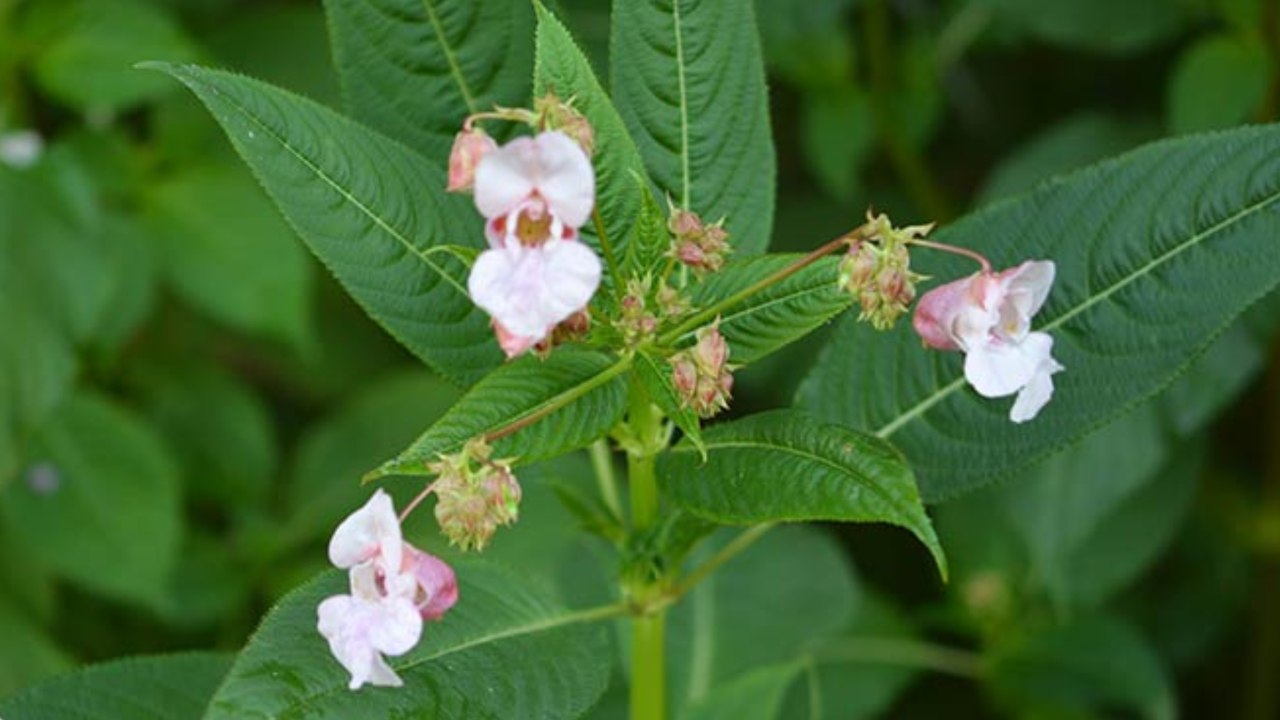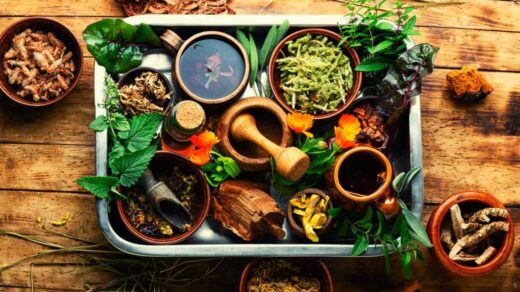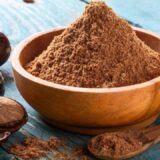Kutki: A Guide to Benefits, Uses, Dosage, and Side Effects
Kutki, scientifically known as Picrorhiza kurroa, is a highly regarded herb in Ayurvedic medicine, known for its broad therapeutic applications. This hardy perennial plant is native to the rocky, high-altitude regions of the Himalayas and parts of Central Asia, where it thrives in harsh, cold climates.

The plant features small, tubular flowers and produces a rhizome, which is the part used medicinally. The rhizomes of Kutki are characterized by their bitter taste, which is a signature attribute of many Ayurvedic herbs. This bitterness is believed to play a crucial role in its therapeutic effects.
Traditionally, Kutki has been employed in Ayurveda for centuries due to its powerful detoxifying, anti-inflammatory, and liver-supportive properties. It is often considered a key component in various herbal formulations aimed at improving overall health and treating specific ailments.
Kutki’s significance in Ayurveda extends beyond its medicinal uses. It is also valued for its role in balancing the body’s doshas (energetic forces) and maintaining harmony within the digestive system.
Its inclusion in Ayurvedic practices highlights its importance as a natural remedy and reflects the rich heritage of traditional medicine in harnessing the benefits of indigenous plants.
Common Names of Kutki In English and Other Languages
Kutki, a plant with significant medicinal properties, is known by various names across different cultures and languages. Here are some of the common names for Kutki:
In the Indian Sub-Continent:
- Hindi: Karoi, Karu, Karwi, Kutki, Kardi, Katuka
- Bengali: Katuki, Katki
- Tamil: Akutarokini, Amakkini, Acokarokini, Akutam, Katukarogini, Kadugurohini
- Malayalam: Kadukrohini, Katukhurohani
- Telugu: Katukarogani, Katuka-rogani, Katukkurohini
- Kannada: Katukarohini, Katukarohini
- Gujarati: Kadu, Katu
- Punjabi: Karru, Kaur, Kaundd, Kaud
In Sanskrit:
- Anjani
- Kavi
- Sutiktaka
- Kauka
- Arishta
- Katumbhara
- Tikta
- Tiktarohini
- Kaurohini
- Matsyapitta
- Krishnabheda
- Ashoka
- Katambhra
- Matshyashakla
- Chakrangi
- Shakuladini
- Kandruha
- Rohini
In Unani Medicine:
- Kutki
These various names reflect the widespread use and recognition of Kutki in traditional medicine systems around the world, highlighting its cultural and therapeutic significance.
Ayurvedic Properties of Kutki
Kutki (Picrorhiza kurroa) is a renowned herb in Ayurveda, celebrated for its powerful therapeutic properties. The Ayurvedic properties of Kutki are integral to its various health benefits and therapeutic uses. Here’s a detailed look at its key properties:
1. Tikta (Bitter): Kutki is predominantly bitter, which contributes to its effectiveness in stimulating digestion and balancing the body’s doshas (energies). The bitter taste is known for its detoxifying properties, which help in purifying the liver and supporting digestive health.
2. Ushna (Hot): Despite its bitter taste, Kutki has a mildly warming effect on the body. This warming property aids in balancing excess coldness in the digestive system and supports the enhancement of digestive fire (Agni), making it beneficial for improving digestion and metabolism.
3. Laghu (Light): Kutki is considered light in nature, which means it is easy to digest and does not weigh down the system. This property is particularly beneficial for individuals with digestive disorders or those who need to manage weight and avoid sluggish digestion.
4. Ruksha (Dry): The herb has a dry quality that helps in reducing excess moisture and phlegm in the body. This property makes Kutki effective in treating conditions related to excess mucus, such as coughs and respiratory issues.
5. Shita (Cool): Kutki has a cooling effect on the body, which helps in alleviating conditions caused by excess heat, such as acidity, inflammation, and burning sensations. This cooling property makes it useful in managing conditions associated with hyperthermia and inflammatory disorders.
6. Vata and Kapha Balancing: Kutki is known to balance both Vata (air and ether elements) and Kapha (earth and water elements) doshas. Its properties help in reducing imbalances associated with these doshas, such as dryness, bloating, and congestion.
7. Pitta Reducing: The herb is effective in reducing Pitta dosha (fire and water elements), which is associated with heat and inflammation. Kutki’s cooling and bitter properties help in managing Pitta imbalances, including conditions like hyperacidity, skin inflammation, and liver disorders.
8. Detoxifying: Kutki’s bitter taste and detoxifying nature support liver function and help in cleansing the body of toxins. This detoxifying effect contributes to improved digestion, clearer skin, and overall better health.
9. Anti-inflammatory: The herb possesses anti-inflammatory properties that help in reducing inflammation throughout the body. This is beneficial for managing conditions such as arthritis, respiratory inflammation, and digestive tract inflammation.
10. Antioxidant: Kutki has antioxidant properties that help protect cells from oxidative stress and damage caused by free radicals. This property supports overall health and longevity by combating oxidative damage and reducing the risk of chronic diseases.
These Ayurvedic properties of Kutki make it a versatile herb with a wide range of therapeutic benefits, from digestive and liver health to managing inflammation and detoxification.
Its ability to balance different doshas and support overall well-being highlights its significance in traditional Ayurvedic medicine.
Top 31 Uses of Kutki in Ayurveda
In Ayurveda, Kutki is revered for its potent detoxifying and digestive benefits, playing a crucial role in balancing the doshas and supporting overall well-being. Below are some of the uses’
1. Jvara (Fever): Kutki is highly regarded for its ability to manage fever, which can arise from various causes, including infections and inflammation. Its antipyretic properties help reduce elevated body temperature and alleviate the associated symptoms, such as sweating and chills. By balancing the body’s internal heat, Kutki supports a quicker recovery from feverish conditions.
2. Yakrit Vikara (Liver Disorders): Known for its potent hepatoprotective effects, Kutki helps in preventing and treating liver disorders such as hepatitis and fatty liver disease. It supports liver function by detoxifying the organ and enhancing bile production, thus aiding in the elimination of toxins. Regular use of Kutki can contribute to overall liver health and resilience against liver diseases.
3. Sangrahini (Diarrhea): Kutki is effective in managing diarrhea by stabilizing bowel movements and reducing the frequency of loose stools. Its astringent properties help tone the intestinal mucosa, which can be beneficial in cases of acute or chronic diarrhea. By restoring digestive balance, Kutki helps prevent dehydration and maintains electrolyte levels.
4. Kamala (Jaundice): For conditions like jaundice, characterized by yellowing of the skin and eyes, Kutki plays a crucial role in improving liver function and detoxification. Its ability to promote bile flow and cleanse the liver helps in reducing bilirubin levels, thus alleviating the symptoms of jaundice and supporting overall liver health.
5. Kasahara (Cough Relief): Kutki helps soothe and alleviate coughs by reducing inflammation and irritation in the respiratory tract. Its expectorant properties facilitate the removal of mucus, providing relief from coughs associated with colds, bronchitis, or other respiratory conditions. By easing throat irritation, Kutki promotes a more comfortable breathing experience.
6. Amahara (Indigestion): The herb addresses indigestion by enhancing digestive fire (Agni) and improving the overall efficiency of the digestive process. Kutki helps in breaking down food more effectively, which can reduce symptoms of bloating, gas, and abdominal discomfort. Its role in digestive health extends to preventing chronic digestive issues and promoting nutrient absorption.
7. Dahahara (Burning Sensation Relief): Kutki is beneficial for relieving burning sensations that may occur due to acidity, gastritis, or inflammatory conditions. By neutralizing excess stomach acid and reducing inflammation, it helps alleviate discomfort and restore a sense of balance in the digestive system.
8. Shwasha (Respiratory Difficulties): In conditions like asthma or chronic obstructive pulmonary disease (COPD), Kutki provides support by reducing bronchial inflammation and improving airflow. Its bronchodilator effects help in easing respiratory difficulties, making breathing more comfortable and manageable.
9. Deepana (Enhances Digestive Fire): Kutki stimulates the digestive fire (Agni), which is essential for proper digestion and metabolism. By enhancing Agni, it supports efficient breakdown and assimilation of nutrients, leading to improved digestive health and overall vitality.
10. Pachana (Digestion Aid): Kutki’s role in digestion includes promoting the secretion of digestive enzymes and bile, which helps in the breakdown of complex foods. This support aids in preventing digestive disturbances and ensuring smooth digestion, leading to better nutrient absorption and overall gastrointestinal comfort.
11. Rochana (Appetite Stimulation): For individuals experiencing loss of appetite, Kutki acts as a natural appetite stimulant. It helps in increasing hunger and encourages regular eating patterns, which is beneficial for maintaining nutritional intake and supporting overall health.
12. Kupachan (Prevents Bloating and Indigestion): Kutki helps prevent bloating and indigestion by promoting normal digestive function and reducing excess gas formation. Its carminative properties help in relieving abdominal distension and discomfort, ensuring a more comfortable digestive experience.
13. Anulomana (Breathing Improvement): By supporting smooth and unobstructed breathing, Kutki helps in managing respiratory issues such as nasal congestion and sinusitis. Its role in improving airflow and reducing respiratory tract inflammation contributes to better respiratory health.
14. Vayasthapana (Anti-Aging): Kutki’s anti-aging properties help maintain youthful vitality by combating oxidative stress and reducing signs of aging. Its ability to support cellular health and repair contributes to a more youthful appearance and overall well-being.
15. Shonitasthapana (Bleeding Control): Kutki supports blood health by helping to control and prevent excessive bleeding. Its hemostatic properties aid in the clotting process, which can be beneficial in managing conditions associated with abnormal bleeding or hemorrhage.
16. Pandu (Skin Disorders): The herb is used in treating various skin conditions, including pigmentation issues and inflammatory skin disorders. Kutki’s purifying and detoxifying effects contribute to clearer, healthier skin by addressing underlying imbalances and promoting a more even complexion.
17. Raktadoshahara (Blood Purification): Kutki acts as a blood purifier by removing toxins and impurities from the bloodstream. This purification process helps in improving skin health, reducing acne, and promoting overall wellness by ensuring a cleaner, healthier circulatory system.
18. Vran Ropana (Wound Healing): Kutki supports the healing of wounds by promoting tissue repair and reducing inflammation at the site of injury. Its wound-healing properties contribute to faster recovery and reduced scarring, ensuring optimal healing outcomes.
19. Mehahara (Urinary Tract Disorders): For urinary tract disorders, Kutki helps in reducing symptoms such as discomfort and inflammation. Its diuretic properties support urinary health by promoting regular urination and aiding in the elimination of urinary tract infections.
20. Prameha (Diabetes Management): Kutki assists in managing diabetes by helping regulate blood sugar levels and improving insulin sensitivity. Its role in balancing glucose metabolism supports better management of diabetes and contributes to overall metabolic health.
21. Vamana (Nausea and Vomiting Prevention): The herb helps prevent nausea and vomiting by soothing the digestive tract and reducing gastrointestinal irritability. Its anti-emetic properties are beneficial in managing symptoms related to motion sickness or digestive disturbances.
22. Trutahara (Excessive Thirst Relief): Kutki provides relief from excessive thirst by helping to balance fluid levels and maintain proper hydration. Its role in managing thirst and ensuring fluid balance contributes to overall comfort and well-being.
23. Pandu (Anemia Treatment): Kutki supports the treatment of anemia by improving blood health and boosting red blood cell production. Its role in addressing symptoms such as fatigue and weakness helps in managing anemia and promoting overall vitality.
24. Balya (Muscle Strength Improvement): The herb enhances muscle strength and endurance by supporting overall physical health. Kutki’s ability to improve muscle function and strength contributes to better physical performance and overall fitness.
25. Hikkanigrahana (Hiccup Control): Kutki helps control and alleviate hiccups by addressing the underlying causes of this condition. Its soothing effects on the digestive and respiratory systems contribute to reducing the frequency and severity of hiccups.
26. Kantya (Sore Throat Relief): For sore throat relief, Kutki helps by reducing inflammation and soothing irritation. Its antimicrobial and anti-inflammatory properties contribute to faster recovery and improved comfort in cases of throat infections or inflammation.
27. Triptighno (Pseudo-Satiation Relief): Kutki addresses pseudo-satiation, a condition where individuals feel full without having consumed enough food. Its role in stimulating digestion and appetite helps restore normal eating patterns and ensures adequate nutritional intake.
28. Vamanopaga (Emesis Treatment): The herb helps manage emesis (vomiting) by soothing the digestive tract and reducing the triggers for vomiting. Its anti-emetic properties contribute to better digestive balance and overall comfort.
29. Varnya (Complexion Improvement): Kutki improves skin complexion by promoting healthy blood circulation and reducing skin blemishes. Its detoxifying and purifying effects contribute to a more radiant and even skin tone.
30. Krimihara (Intestinal Worm Relief): The herb helps in relieving intestinal worms and parasitic infections by promoting a healthy digestive environment. Its anthelmintic properties support the elimination of parasites and contribute to better digestive health.
31. Hridaya (Heart Health): Kutki supports heart health by improving circulation and reducing cardiovascular risk factors. Its role in managing conditions such as hypertension and supporting overall heart function contributes to better cardiovascular wellness.

























